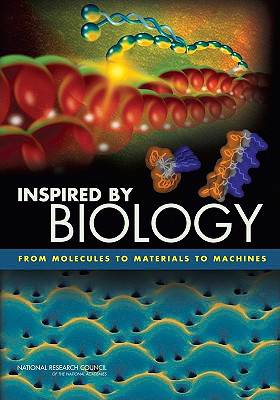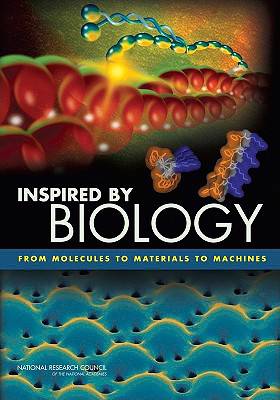
- Afhalen na 1 uur in een winkel met voorraad
- Gratis thuislevering in België vanaf € 30
- Ruim aanbod met 7 miljoen producten
- Afhalen na 1 uur in een winkel met voorraad
- Gratis thuislevering in België vanaf € 30
- Ruim aanbod met 7 miljoen producten
Zoeken
Inspired by Biology
From Molecules to Materials to Machines
National Research Council, Division on Earth and Life Studies, Board on Life Sciences, Division on Engineering and Physical Sciences, Board on Physics and Astronomy, Solid State Sciences Committee, Committee on Biomolecular Materials and Processes
Paperback | Engels
€ 72,95
+ 145 punten
Omschrijving
Scientists have long desired to create synthetic systems that function with the precision and efficiency of biological systems. Using new techniques, researchers are now uncovering principles that could allow the creation of synthetic materials that can perform tasks as precise as biological systems. To assess the current work and future promise of the biology-materials science intersection, the Department of Energy and the National Science Foundation asked the NRC to identify the most compelling questions and opportunities at this interface, suggest strategies to address them, and consider connections with national priorities such as healthcare and economic growth. This book presents a discussion of principles governing biomaterial design, a description of advanced materials for selected functions such as energy and national security, an assessment of biomolecular materials research tools, and an examination of infrastructure and resources for bridging biological and materials science.
Specificaties
Betrokkenen
- Auteur(s):
- Uitgeverij:
Inhoud
- Aantal bladzijden:
- 170
- Taal:
- Engels
Eigenschappen
- Productcode (EAN):
- 9780309117043
- Verschijningsdatum:
- 17/07/2008
- Uitvoering:
- Paperback
- Formaat:
- Trade paperback (VS)
- Afmetingen:
- 175 mm x 251 mm
- Gewicht:
- 498 g

Alleen bij Standaard Boekhandel
+ 145 punten op je klantenkaart van Standaard Boekhandel
Beoordelingen
We publiceren alleen reviews die voldoen aan de voorwaarden voor reviews. Bekijk onze voorwaarden voor reviews.











